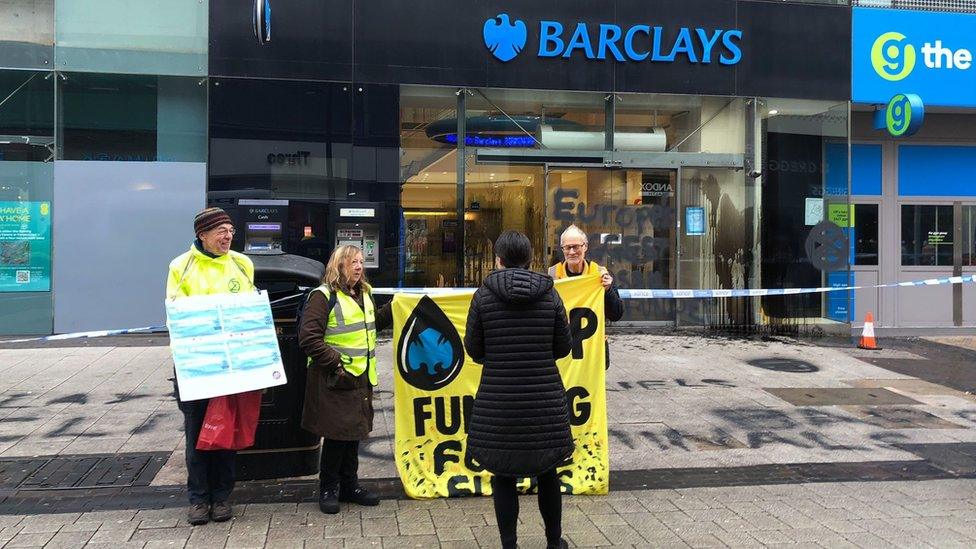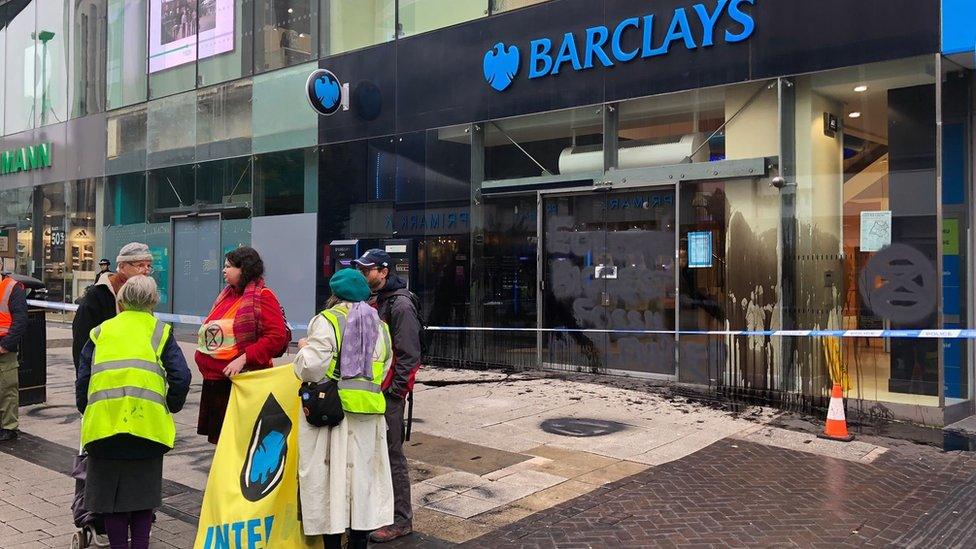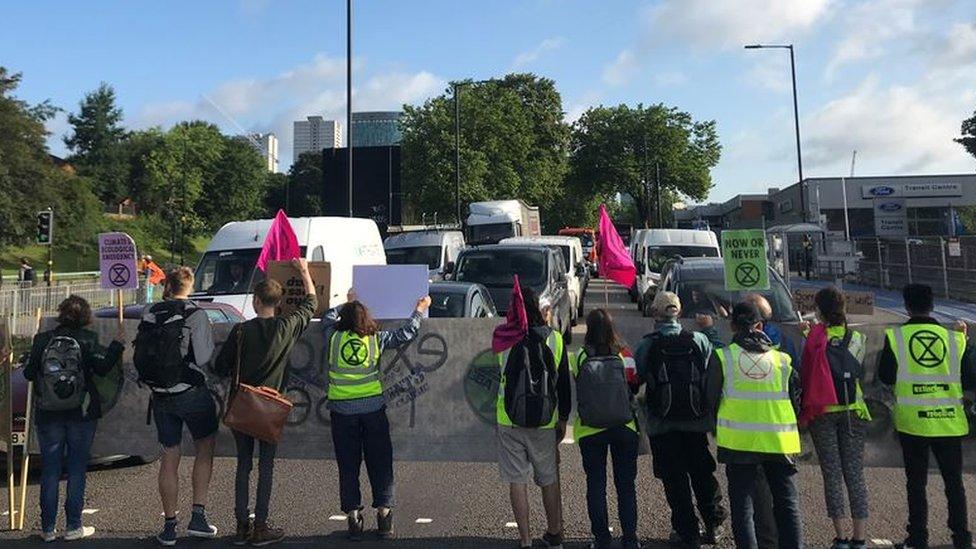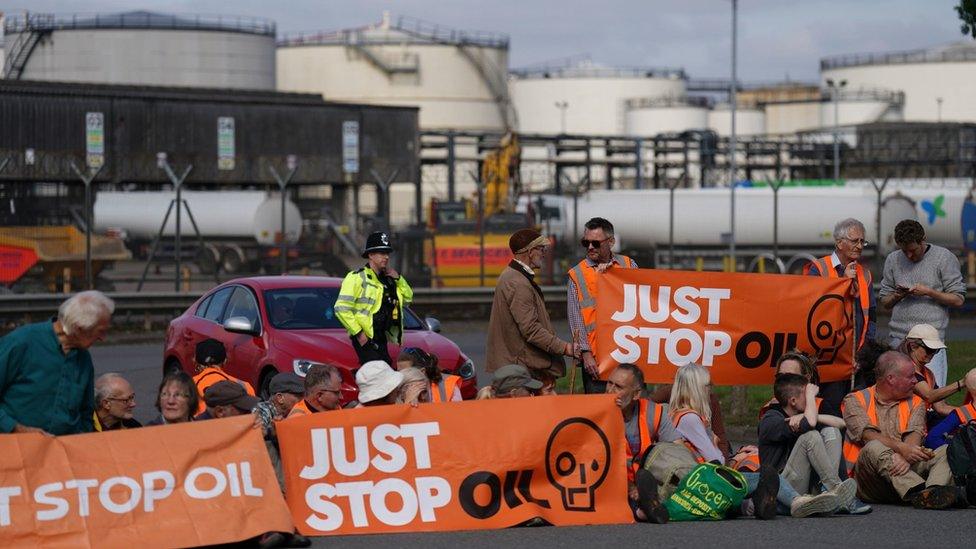Barclays Birmingham branch defaced in climate change protest
- Published

Activists claim Barclays is Europe's biggest fossil fuel funder
A branch of Barclays has been defaced with fake oil by climate protesters.
At about 09:00 GMT on Monday, activists from Extinction Rebellion threw black paint on to Barclays bank, in Birmingham's High Street.
Extinction Rebellion said: "We're here to raise awareness to what Barclays is doing in investing in fossil fuels."
West Midlands Police said four people had been arrested on suspicion of causing criminal damage and remained in police custody.
"We will always respect people's right to lawfully protest, but lawful protest does not stretch to committing criminal offences.
"We cannot stand by and allow people to cause criminal damage to a building that is likely to result in disruption and repair bills," a police spokesperson said.
In a statement, Barclays said: "We are determined to play our part in addressing the urgent and complex challenge of climate change."
It added: "In March 2020 we were one of the first banks to set an ambition to become net zero by 2050, across all of our direct and indirect emissions, and we committed to align all of our financing activities with the goals and timelines of the Paris Agreement."
Extinction Rebellion describes itself as "an international movement that uses non-violent civil disobedience in an attempt to halt mass extinction and minimise the risk of social collapse".
A video on Twitter shows the moment activists spray painted the words "Europe's biggest fossil fuel funder" on to the door of the entrance to the bank.

Barclays says it has a three-part strategy to achieve net zero carbon emissions
The group also wrote on the social media platform: "Cut ties with Fossil Fuels. Your social license is ended."
Barclays' statement added: "We have a three-part strategy to turn that ambition into action: achieving net zero operations, reducing our financed emissions, and financing the transition.
"In practice, this means we have set 2030 targets to reduce our financed emissions in four of the highest emitting sectors in our financing portfolio, with additional 2025 targets for the two highest-emitting sectors - energy and power.
"We have also provided over £80bn of green financing and we are investing our own capital - £175m - into innovative, green start-ups."

Follow BBC West Midlands on Facebook, external, Twitter, external and Instagram, external. Send your story ideas to: newsonline.westmidlands@bbc.co.uk, external
Related topics
- Published7 August 2019

- Published14 September 2022
